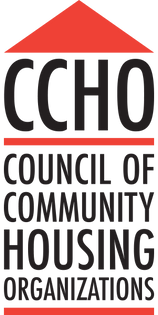Regional Policy & Applied “Smart Growth”
While The Council of Community Housing Organizations’ core work has been at the local level, where land use and housing decisions are made, the trends of increasing regional analysis and smart growth planning are changing the context for local work. Upwards of 900,000 new housing units in the Bay Area are envisioned by the Metropolitan Transportation Commission (MTC) and the Association of Bay Area Governments (ABAG) over the next 25 years, and San Francisco is expected to absorb upwards of 15% of all that growth. The “Big Three” cities of San Francisco, Oakland, and San Jose combined are expected to absorb an eye-popping 40% of all future development. By definition all development in San Francisco is “urban infill,” the basic premise of smart growth. If done right, the implementation of the landmark California bills SB 375 and AB32 could lead to the region becoming a model for healthy, environmentally sustainable and equitable communities. But the SB 375 and AB 32 goals will fail if we do not achieve housing affordability and a housing and jobs “fit” at the local level in our cities. Gentrification and displacement of low-income and working class residents is a very real concern – finding the right balance between growth and stability of communities is not a new challenge for SF. CCHO’s role and experience in four decades of applied smart growth is more valuable now than it has ever been given this changing context of regionalism in setting land use policy.
Like other Bay Area jurisdictions, San Francisco has long had a pattern of over-development of housing that only upper-income households can afford. The difference is that San Francisco has also been a leading producer of affordable housing. The emphasis now on “sustainable communities” at a regional scale means that solving the imbalance of affordable housing production at the local level is a critical piece of regional smart growth. Ultimately, without addressing the affordable housing crisis, “smart growth” will not be a solution to the climate crisis, and it will exacerbate social inequities.
At the same time, and compounding the challenges brought by state policies that are more accurately described as an “infill development” agenda, the affordable housing movement continues to be at a critical juncture with great uncertainty about the future of significant funding given that redevelopment tax increment capture as a local funding source was dissolved in 2011 by the State Government. The insufficient commitment to affordable housing by the State makes the successful implementation of “smart growth” even more challenging. These forces changing the broader context of affordable housing work give new meaning to CCHO’s impact.
Programs: Housing & Land Use Policy | Regional Policy & Applied Smart Growth | Advocacy, Education & Organizing
